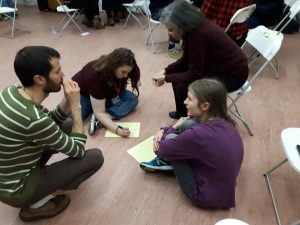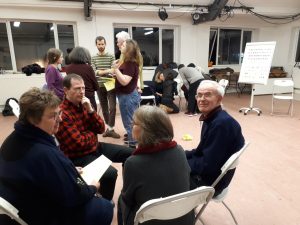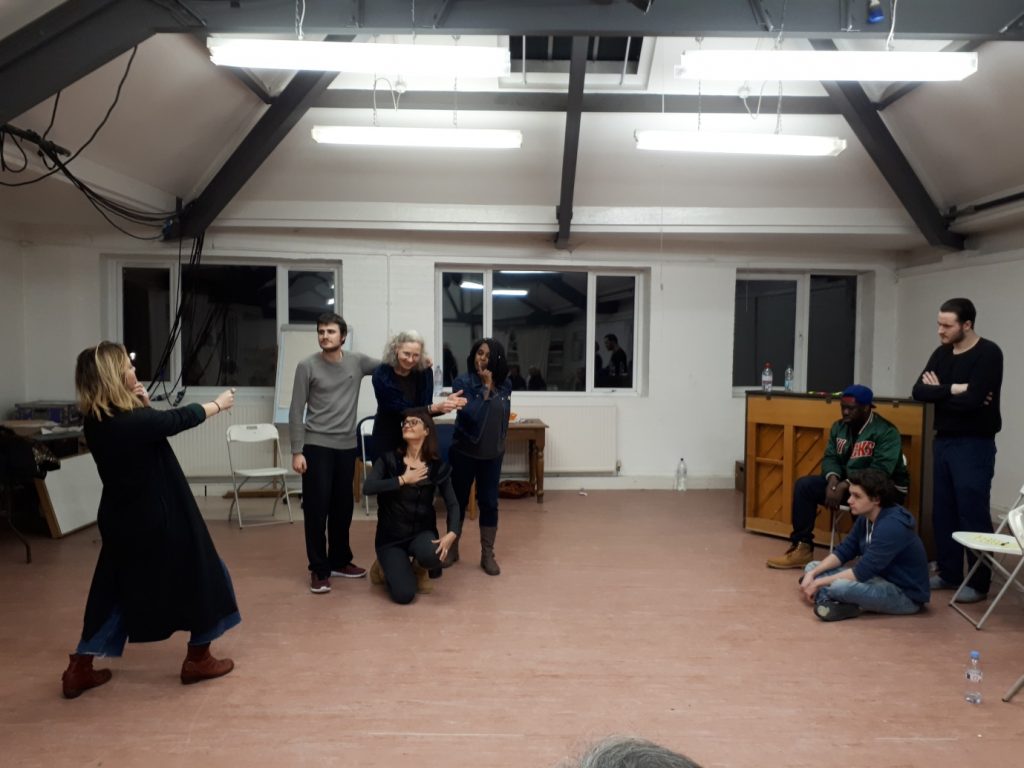Our exploration into the passengers on the Mayflower saw us setting out for our own new worlds last week.
We were tasked with devising our character and considering our skills and hobbies. As we’ve been reflecting recently on what drives people to leave, we also had to come up with our own reason for why we were wanting to leave the familiarity of our homeland for the unknown. I was an artist, whose creativity had grown stale with the homogeneity and modernization of my home country. I was wanting to leave to find new beauty, and a new land where it was acceptable for me to sit and paint all day.
We then had to mingle within the group to find the passengers we would want to take with us on our journey. Initially I started looking for people who had the practical skills that I lacked: builders, people who could grow food, people with mediation skills etc. I also made sure people had the same dreams as me, equally keen to create the hedonistic world that would allow me to spend my hours painting. Did passengers on the Mayflower take these things into consideration, making sure they had a good balance of skills and a shared ethos on board?


Having found our fellow journey men/women, we had to imagine arriving at our new home: what would happen on the first day, the first year, and then what our legacy would be. All groups set about envisioning their utopias, a beautiful new blank canvas of a land ready for us to create that perfect society.
Our story was complicated when we had to pick circumstances out of a hat that would impact on our arrival. For our group, we arrived to a new land during monsoon season. The land was too sodden to build on. Our few possessions were damaged. We couldn’t begin our original plan of getting to work building our community. Other groups faced similar difficulties such as infertile soil or greeting less than friendly locals. We were well aware of the challenges that the Mayflower passengers faced on their journey and arrival. In fact just that session we were reminded of the shockingly small percentage of passengers who made it past the first winter.
What struck me most in our simulation, though, was the creative and unrealistic response each group had to the challenges. Being plagued by terrible weather, our group decided we would simply be a type of people who enjoyed the rain and would build in it anyway. Simple as that. One way or another all groups managed to survive the difficulties seamlessly. Nobody died. Each founding father and mother were to be venerated for generations to come by their descendants, who will continue to tell the story of how they bravely founded the new land.
How interesting, how when asked to simulate our own journeys to new lands, none of us adopted a rationalist point of view. None of our characters died. None got ill. None of our struggled to create the utopia we left our homelands to find. The exercise certainly made me reflect on the thoughts of of the passengers on the Mayflower, were they anticipating the struggles they’d encounter, or was that blinded by the thought of a new life? Who were the realists, and who the idealists? How did they talk about the new community they were setting out to build? And as a parting thought, I can’t help but think of those who arrive to Europe with the same hope of a life with less danger and fear. Do they anticipate the hostility they find here? Is the dream of utopia enough?

